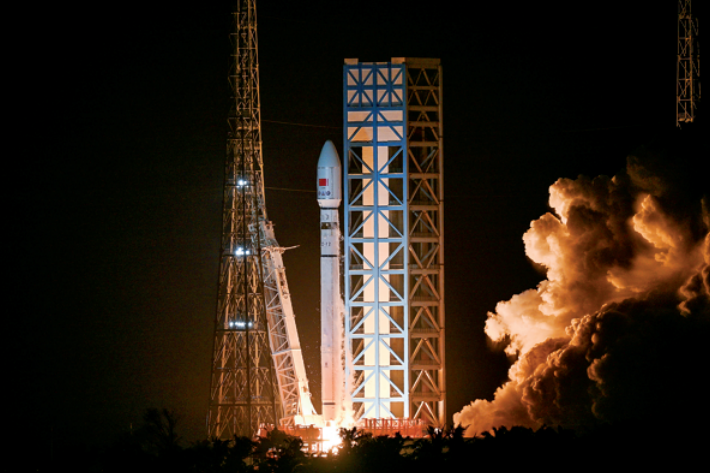Experts: RMB helps safeguard global financial stability
By ZHOU LANXU | China Daily Global | Updated: 2023-08-15 13:55

The Chinese renminbi has emerged as a safeguard for global financial stability, shielding an increasing number of developing economies from the spillover effect of drastic adjustments in the United States' monetary policy, experts said.
Argentina's use of the renminbi to pay its debts to the International Monetary Fund, in particular, has underscored the currency's potential in mitigating developing economies' common challenge of a US dollar shortage and revamping the global monetary system, they said.
In late July, Argentine Economy Minister Sergio Massa announced that the nation's government will use the renminbi liquidity provided by its currency swap agreement with China to repay $1.7 billion of its $2.7 billion payment obligations to the IMF, and expressed his thanks to the Chinese government, China Central Television reported.
"The move was not only a significant, innovative step in renminbi internationalization, but also helped Argentina tackle the challenge of a severe dollar shortage," said Yue Yunxia, director of the department of economics at the Chinese Academy of Social Sciences' Institute of Latin American Studies.
Argentina's economy is plagued by a shortage of dollar reserves amid drastic local currency depreciation due to severe stagflation. The situation was further worsened by the US Federal Reserve's aggressive interest rate hikes, which intensified the Argentine peso's depreciation and increased the country's debt burden, Yue said.
In this context, Argentina's currency swap agreement with China has provided it with low-cost renminbi financing that helped the country fulfill its payment obligations to the IMF, preventing liquidity stress from evolving into a solvency crisis, Yue said.
In June, the People's Bank of China, the nation's central bank, and the Central Bank of Argentina renewed their bilateral currency swap agreement at a three-year swap scale to 130 billion yuan ($17.9 billion) for 4.5 trillion pesos. In a currency swap, a central bank borrows the renminbi with its own country's currency as collateral and vice versa.
Experts deemed Argentina's renminbi repayment as an example of the Chinese currency's growing role in safeguarding the financial stability of developing economies as they increasingly opted for the renminbi in international settlements and financing.
"The renminbi has provided economies suffering from a dollar shortage with an alternative option for trade settlements," said Wang Jinbin, a professor of economics at Renmin University of China.
Joining Brazil and Argentina, Bolivia became the latest South American economy to regularly use the renminbi in international trade, The Associated Press reported in July.
Globally, the Chinese currency's share of global payments had risen for five consecutive months to 2.77 percent in June, the highest level since January 2022, according to global financial messaging platform SWIFT.
Common challenge
According to Wang, the challenge of a dollar shortage is common among developing economies amid the US Fed's drastic interest rate hikes.
For those economies, using the renminbi in trade settlements can avoid the dollar shortage from hindering their foreign trade and mitigate the depreciation pressure on their local currencies against the dollar, thus helping to safeguard their financial stability.
"In this sense, renminbi internationalization points to significant progress in the global monetary system — demonstrating how an emerging international currency can help address the long-existing spillover effect brought by the system's overreliance on one single currency," Wang said.
Liu Chunsheng, an associate professor of international trade at Central University of Finance and Economics, said the renminbi's emerging function as a financing currency also helps developing economies diversify their external debt, lower their financing costs and contribute to debt sustainability.
In March, the Export-Import Bank of China announced that it had achieved its first renminbi loan cooperation with the Saudi National Bank, while Egypt is poised to be the first African country to issue panda bonds, renminbi-denominated bonds sold by a non-Chinese issuer within the Chinese mainland.
"Argentina's case might have set a precedent," Liu said.
"The renminbi may be used more in international debt repayment as in Argentina's case — a breakthrough in enhancing the renminbi's status as an international currency — which can boost creditors' willingness to accept the renminbi in repayment."
The PBOC and its counterparts in about 40 countries and regions have formed bilateral currency swap arrangements. Most recently, China's central bank said this month that it had renewed a bilateral currency swap agreement with the Bank of Mongolia at a size of 15 billion yuan.
























